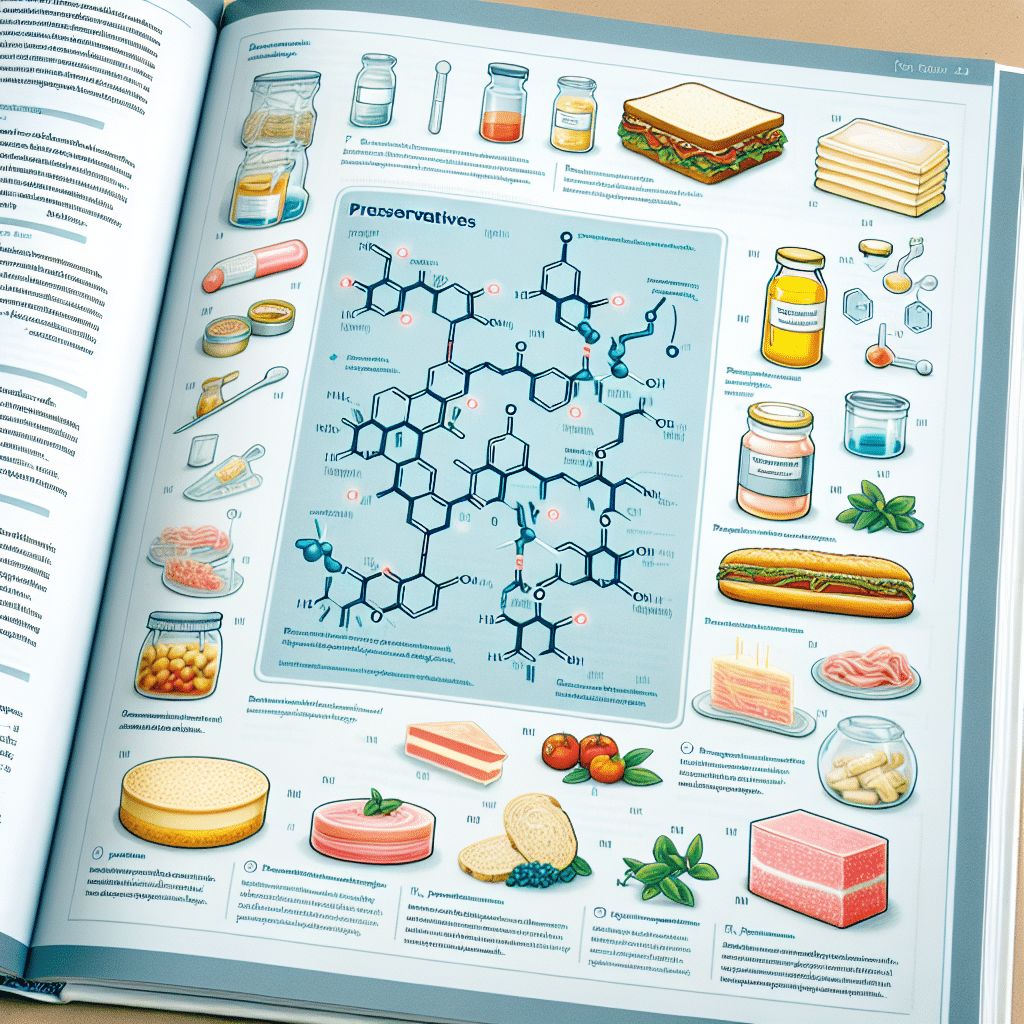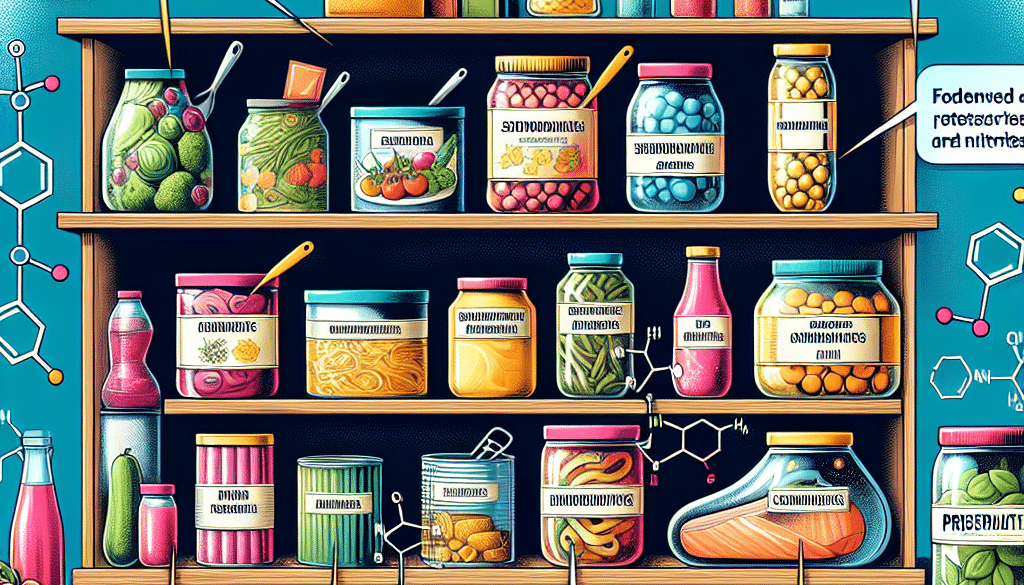The Role of Food Additives Part 2: Preservatives
-
Table of Contents
- Understanding the Role of Food Preservatives in Modern Diets
- The Importance of Food Preservatives
- Types of Food Preservatives
- Preservatives and Food Safety
- Case Studies and Statistics
- Impact on Health and Nutrition
- Consumer Preferences and Trends
- Conclusion: Balancing Safety and Preferences
- ETprotein: Enhancing Your Diet with High-Quality Protein Products
Understanding the Role of Food Preservatives in Modern Diets

Food preservatives have become an integral part of the food industry, playing a crucial role in maintaining food quality, ensuring safety, and extending shelf life. In this second part of our exploration into food additives, we delve into the world of preservatives, examining their functions, types, and the impact they have on our food supply.
The Importance of Food Preservatives
Preservatives serve a vital purpose in preventing food spoilage caused by microorganisms such as bacteria, molds, and yeasts. By inhibiting the growth of these organisms, preservatives help to keep food safe for consumption and reduce food waste. They are particularly important in processed foods, which may spend extended periods in transit and on store shelves.
Types of Food Preservatives
There are several types of preservatives used in the food industry, each with specific functions:
- Natural Preservatives: These include salt, sugar, vinegar, and certain herbs and spices that have been used for centuries to preserve food.
- Chemical Preservatives: These are synthetically produced and include substances like sodium benzoate, potassium sorbate, and sulfites.
- Antioxidants: These prevent oxidation, which can cause rancidity and color changes in food. Common antioxidants include ascorbic acid (vitamin C) and tocopherols (vitamin E).
Preservatives and Food Safety
Preservatives are rigorously tested and regulated by food safety authorities such as the FDA in the United States and the EFSA in Europe. They must be proven safe for consumption at the levels used in foods. Despite this, some consumers have concerns about the potential health effects of synthetic preservatives, leading to an increased demand for natural alternatives.
Case Studies and Statistics
Studies have shown that preservatives can significantly extend the shelf life of products. For example, the use of sodium benzoate in acidic foods like salad dressings can prevent the growth of bacteria and molds, allowing these products to remain safe and palatable for months. Similarly, antioxidants like BHA and BHT have been effective in preserving the freshness of cereals and snack foods.
Statistics indicate that the global food preservatives market is growing, with a projected increase from $2.7 billion in 2018 to $3.7 billion by 2023. This growth is partly driven by the rising demand for processed and packaged foods in emerging economies.
Impact on Health and Nutrition
While preservatives play a key role in preventing foodborne illnesses, there is ongoing research into their long-term health effects. Some studies suggest that certain synthetic preservatives may have adverse effects when consumed in large quantities over time. However, when used within the recommended limits, preservatives are generally recognized as safe by health authorities.
Consumer Preferences and Trends
There is a growing trend towards clean label products, with consumers seeking out foods with fewer artificial additives. This has led to increased use of natural preservatives and innovative preservation techniques such as high-pressure processing and modified atmosphere packaging.
Conclusion: Balancing Safety and Preferences
In conclusion, food preservatives are essential for maintaining the safety and longevity of our food supply. While there are concerns about synthetic preservatives, they are subject to strict safety regulations. The food industry continues to innovate, developing new preservation methods and natural alternatives to meet consumer demand for cleaner labels.
ETprotein: Enhancing Your Diet with High-Quality Protein Products
If you’re looking to enhance your diet with high-quality protein products, ETprotein offers a range of organic bulk vegan proteins that are non-GMO and allergen-free. Their products, including rice protein, pea protein, and various seed proteins, are characterized by a neutral taste and high purity levels, making them an excellent choice for those seeking clean and nutritious food additives.
About ETprotein:
ETprotein, a reputable protein and L-(+)-Ergothioneine (EGT) Chinese factory manufacturer and supplier, is renowned for producing, stocking, exporting, and delivering the highest quality organic bulk vegan proteins and L-(+)-Ergothioneine. They include Organic rice protein, clear rice protein, pea protein, clear pea protein, watermelon seed protein, pumpkin seed protein, sunflower seed protein, mung bean protein, peanut protein, and L-(+)-Ergothioneine EGT Pharmaceutical grade, L-(+)-Ergothioneine EGT food grade, L-(+)-Ergothioneine EGT cosmetic grade, L-(+)-Ergothioneine EGT reference grade and L-(+)-Ergothioneine EGT standard. Their offerings, characterized by a neutral taste, non-GMO, allergen-free attributes, with L-(+)-Ergothioneine purity over 98%, 99%, cater to a diverse range of industries. They serve nutraceutical, pharmaceutical, cosmeceutical, veterinary, as well as food and beverage finished product distributors, traders, and manufacturers across Europe, USA, Canada, Australia, Thailand, Japan, Korea, Brazil, and Chile, among others.
ETprotein specialization includes exporting and delivering tailor-made protein powder and finished nutritional supplements. Their extensive product range covers sectors like Food and Beverage, Sports Nutrition, Weight Management, Dietary Supplements, Health and Wellness Products, and Infant Formula, ensuring comprehensive solutions to meet all your protein needs.
As a trusted company by leading global food and beverage brands and Fortune 500 companies, ETprotein reinforces China’s reputation in the global arena. For more information or to sample their products, please contact them and email sales(at)ETprotein.com today.












